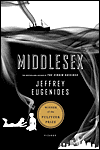The History of Tom Jones, a Foundling (Henry Fielding)
 "Hell-oooo, Tom!" she says with a wolf whistle. How do you still look so dashing after, let's see... 257 years? What? How long? you may ask but I speak the truth. The character is just as dashing, humorous and entertaining as he was when this novel was first published in 1749. Sex! Sex in a novel from 1749?! Ah yes, 'tis true and oh-my-dear so funny.
"Hell-oooo, Tom!" she says with a wolf whistle. How do you still look so dashing after, let's see... 257 years? What? How long? you may ask but I speak the truth. The character is just as dashing, humorous and entertaining as he was when this novel was first published in 1749. Sex! Sex in a novel from 1749?! Ah yes, 'tis true and oh-my-dear so funny. Young, foolish, lustful, rougish, golden-hearted, loyal (sometimes) and handsome--Tom's is a typical foundling's tale. He is the product of sin, abandoned and raised by a benevolent man who grows up to have wild adventures, be disinherited by the benevolent man unjustly and be "unsuited" (meaning of low-birth and no money) for the woman he loves. But as with so many classic plotlines that have become trite with time, every obstacle thrown in the path will eventually be tidied up, all threads tied with the reader's amused smile.
I say, "Classic plotlines, typical tales." This is both yet neither. In fact, Fielding is often credited as being the inventor of the genre of the novel. Theater and poetry were the forms of the day, the ones those that were rich enough to read did read. Fielding instead decided to tell an entirely fictional tale (and admit it the fiction, which was shocking). To me, Fielding is truly a gifted author to have gotten the ball of fiction rolling (thank you from all readers, Henry!) and also due to his style. His tone and diction, though antiquated, are relatively easy to get used to as compared to Dickens and Co. Plus, I love the way he addresses the reader directly, a metafictional technique done centuries before we modern writers coined the term.
A great read, especially for those with a knack for such old style. For those who don't want to tackle the complex language, there is always the movie, which is also fantastic.





